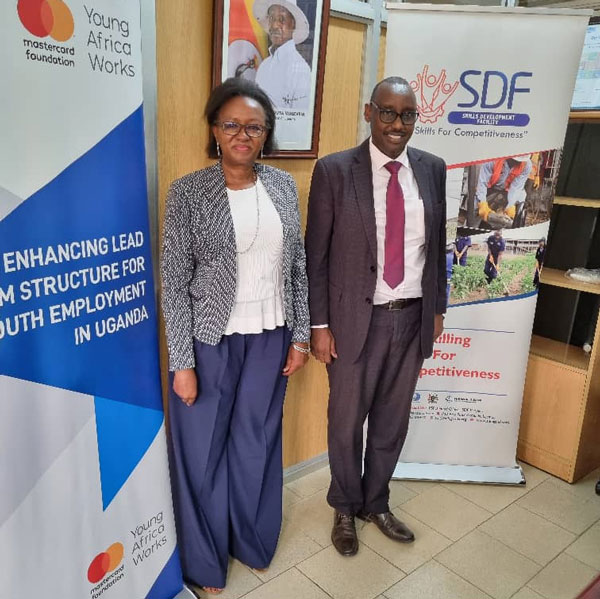
Kampala, Uganda | THE INDEPENDENT | The government should create sufficient and quality jobs by accelerating a sustainable and inclusive economic transformation to resume the path of inclusive growth and poverty reduction, the World Bank Group’s 2021 Systematic Country Diagnostic (SCD) has recommended.
According to SCD, the government should focus on macro-fiscal stability, improved governance and service delivery, human capital development, and women empowerment. On green growth, SCD recommends that the focus should be on sustainable urbanization and resilience, agricultural commercialization, and private sector competitiveness if the economy is to get out of the COVID-19 setback very fast as desired.
This part of the World Bank group’s systematic country diagnostic 2021 update SCD 2021 report launched in Kampala Thursday afternoon. SCD updates is a five-year analysis by the World Bank that identifies the key challenges and opportunities for a given country to accelerate progress.
Makuri Kariuki, the World Bank Uganda country manager, says that the five areas would create sufficient and quality jobs by accelerating a sustainable and inclusive economic transformation. The SCD 2021 update shows that Uganda’s economy had greatly improved and that the workforce in on-farm agriculture reduced from 71% to 62%. It also shows that there was an explosion in the services sector and a rapid increase in access to digital technology.
However, the COVID-19 surge led to widespread firm closures, permanent layoffs, and a general slowdown in economic activities and labour moved back to farming. Richard Walker, a senior economist at World Bank Uganda and the author of the SCD 2021, noted that the five key priority areas are a valid application since they are based on analysis made by the world bank about the country’s economy for five years in consultation with all stakeholders;
Under the macro-fiscal policy stability, the bank called for improved revenue mobilization and strengthening of budget processes. And for human development and women empowerment, the report calls for a well-designed distribution plan for COVID-19 vaccines, increasing social services, promotion of technical and vocational training as well as the implementation of laws and policies that empower women economically.
For agricultural commercialization and private sector competitiveness, SCD recommends increasing farmers’ access to the markets, low-cost financing for the informal sector and strengthening land tenure security. This also goes for agricultural research and extension services as well the development of secondary cities.
Maris Wanyera, the acting director of Debt and cash policy at the Ministry of Finance and Economic Development, said that it is good to have stakeholders giving such advice to the government, which should be taken in good faith.
Whereas Stephen Asiimwe, the CEO of the private sector foundation welcomed the proposed strategies, saying that the private sector like the government is also going through the COVID-19 challenges and needs urgent direct interventions to pick up.
He noted that the human capital development needs to be urgently addressed because it’s what determines performance;
The World Bank Group’s engagement with a country is underpinned by the SCD and a Country Partnership Framework (CPF) through a four-stage cycle that starts with the identification of key challenges and opportunities for a country to accelerate progress.
*****
URN
 The Independent Uganda: You get the Truth we Pay the Price
The Independent Uganda: You get the Truth we Pay the Price





